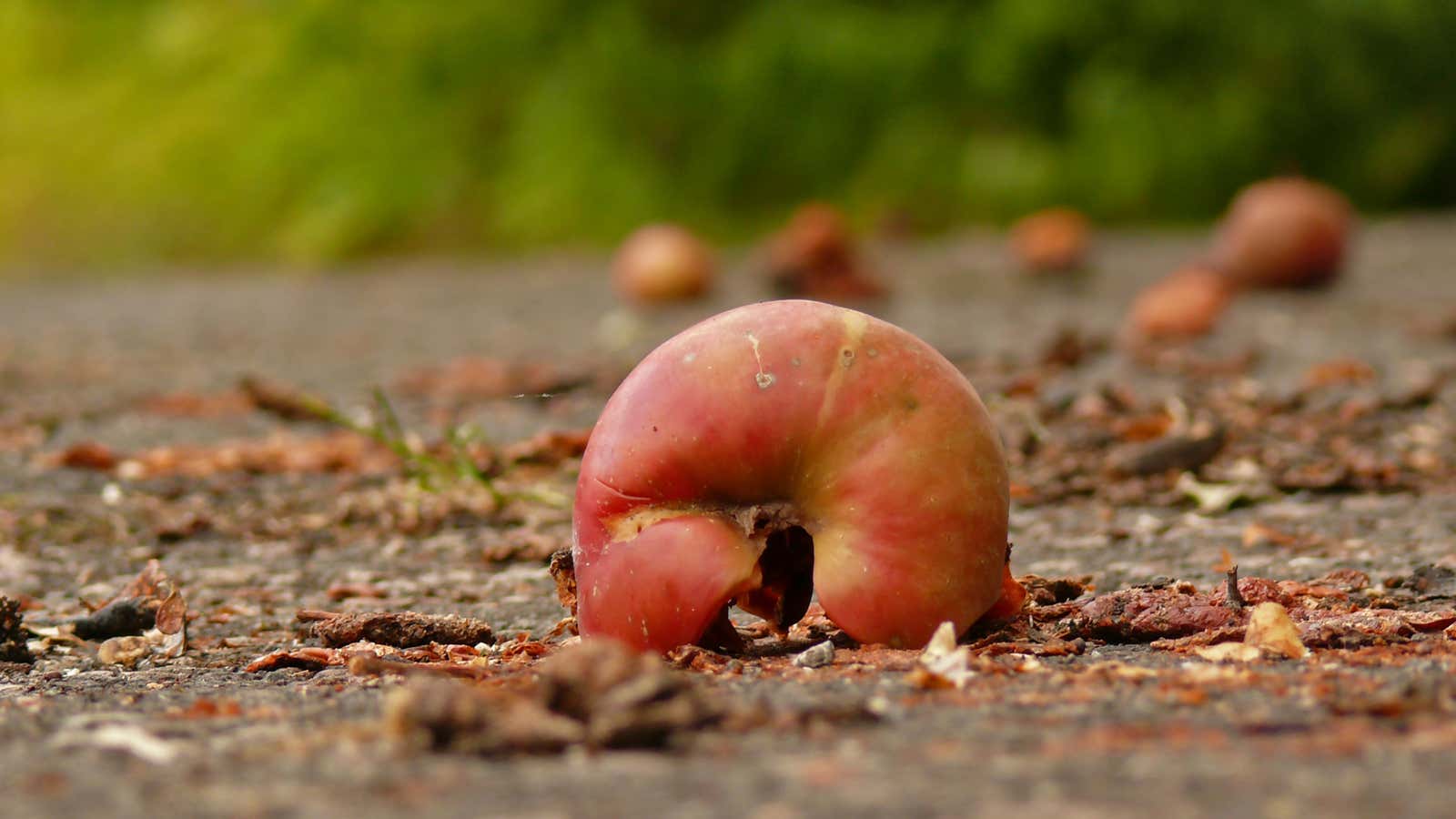Drinking and eating in China is a dangerous business—one that it occasionally exports. The government is now probing three leading Chinese fruit juice processors for buying rotten fruit on the cheap and mixing it in with ripe fruit, though there’s apparently no evidence so far that they have.
This announcement came a couple of days after 21st Century Business Herald, a Chinese newspaper, published an in-depth exposé implicating three of China’s biggest juice-makers for buying rancid or premature fruit (link in Chinese) and processing it into juice or juice concentrate. A disappointing harvest this year caused a scarcity of fruit for juice, as “good” fruit went to the fruit retail market.
“You can’t sell these fruits to regular people to eat,” one collector of rotten fruit told 21CBH, as he swatted away flies. “So I’m bringing them to the [Xuzhou Andre factory, a subsidiary of Yantai North Andre Co].”
This is, of course, scary for anyone who lives in China, particularly parents who assume that juice is a “healthy” treat for their children. It’s also potentially scary for hundreds of millions of other people. China is the planet’s leading producer of apple juice. It also exports around 90% of the world’s fruit juice concentrates, says 21CBH (link in Chinese), including around 60% of the world’s apple juice concentrates. Americans alone drank 367 million gallons of Chinese apple juice (pdf, p.10) in 2012—around 65% of the total amount consumed.
The three juice-makers—Haisheng, Yantai North Andre and Huiyuan—are among China’s leading juice exporters. Haisheng exports 30% of Chinese juice bought in the US and Canada, reports Caijing, and the company is the world’s biggest global supplier of apple juice, pear juice concentrate and apple flavoring (link in Chinese). Haisheng exported $280 million in apple juice concentrate last year, around $151 million of which went to the US and Canada.
Huiyuan and Andre, which specialize more in fruit juice concentrates, now supply 40% of the world’s apple juice concentrate (paywall). In H1 2013, Andre exported $15 million (pdf, p.70) worth of fruit juice concentrate to North America.
Even if some rotten fruit has made it into the juice supply—which, to reiterate, is as yet unproven—that doesn’t necessarily mean it will get exported. But what can happen from drinking rotten juice?
One problem comes from patulin, a toxic mold found most often in apples that can be acutely toxic in high levels (some studies suggest that in smaller doses, it’s merely carcinogenic). It also mostly survives pasteurization, according to the US Food and Drug Administration (FDA). The FDA is, however, sufficiently unworried about patulin to leave it up to processors to “voluntarily” establish controls to keep patulin levels below a safe threshhold. The main measure it recommends is “removing spoiled and visually damaged apples” from the production line.
But US policymakers are already skittish about buying Chinese food. If the reports of rotten fruit turn out to be true, it’s unlikely to sit well with the US and other importing countries, particularly given that, as Haisheng reports, the Chinese government gave it $1.2 million (pdf, p.7) in “subsidies for encouraging the Group’s export sales,” specifically its fruit juice concentrate business. Andre also receives Chinese government “grants” (pdf, p.13). If export demand drops, at least Haisheng and Andre can expect more subsidies. Chinese fruit farmers who are so desperate they’re selling their rotting food won’t be as lucky.
